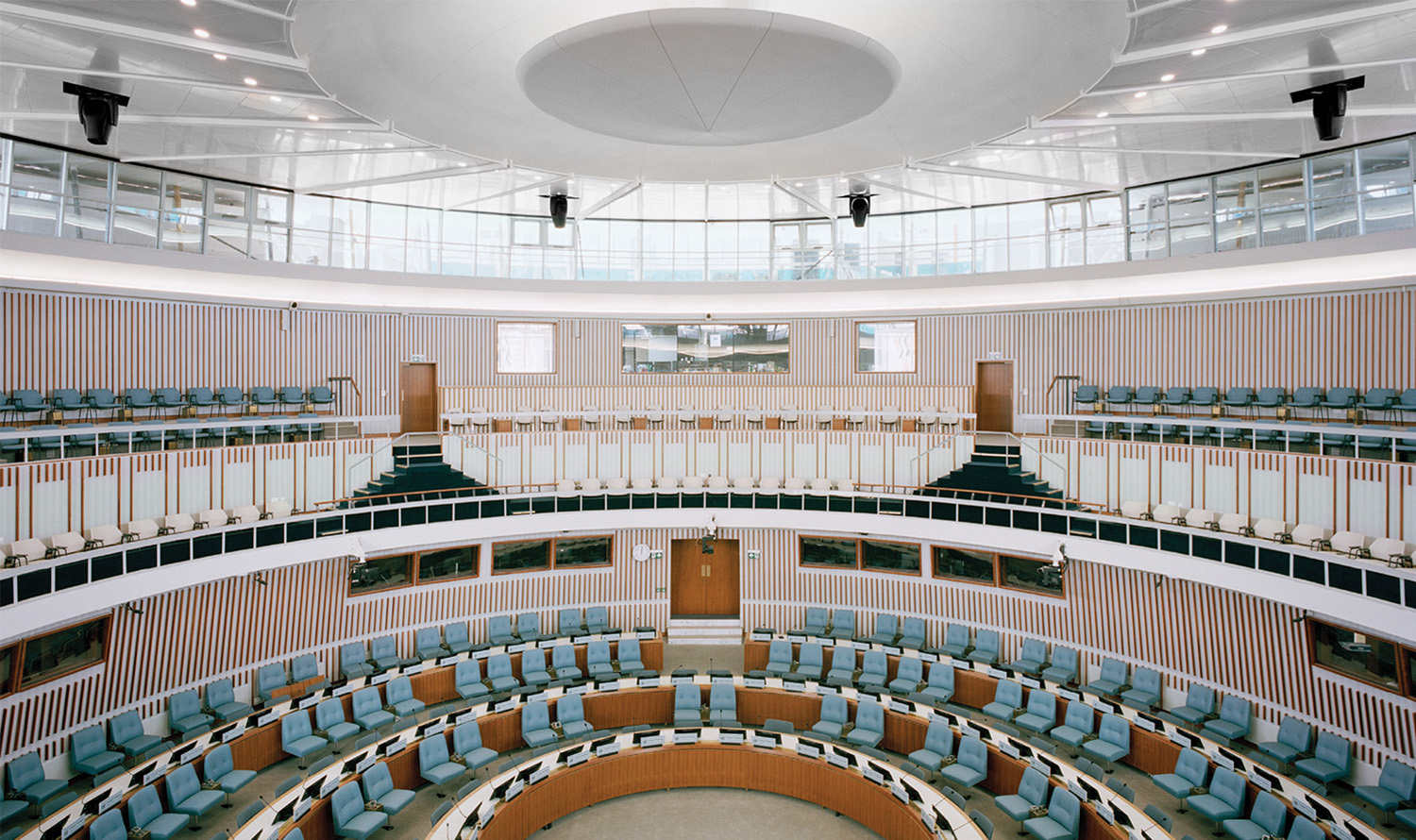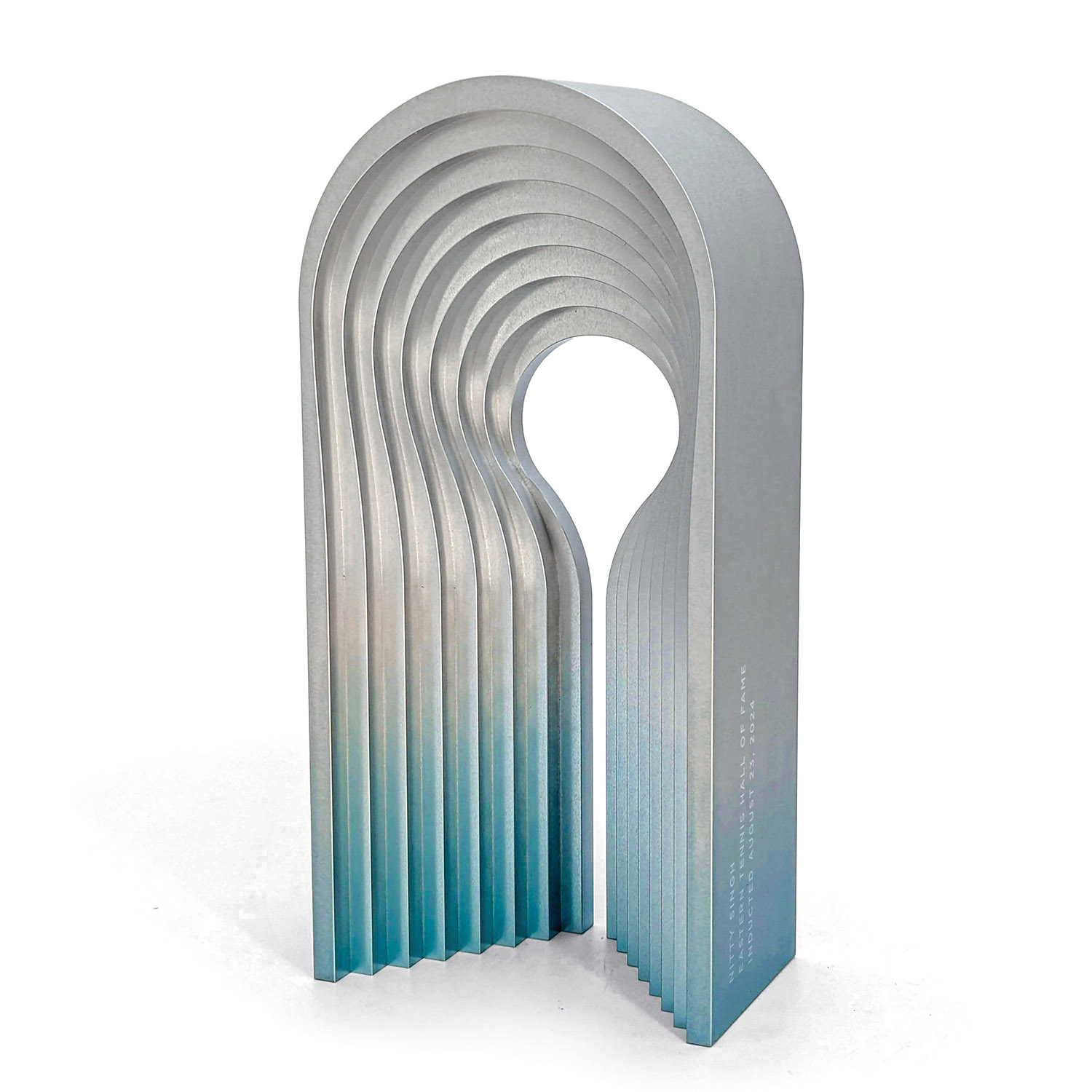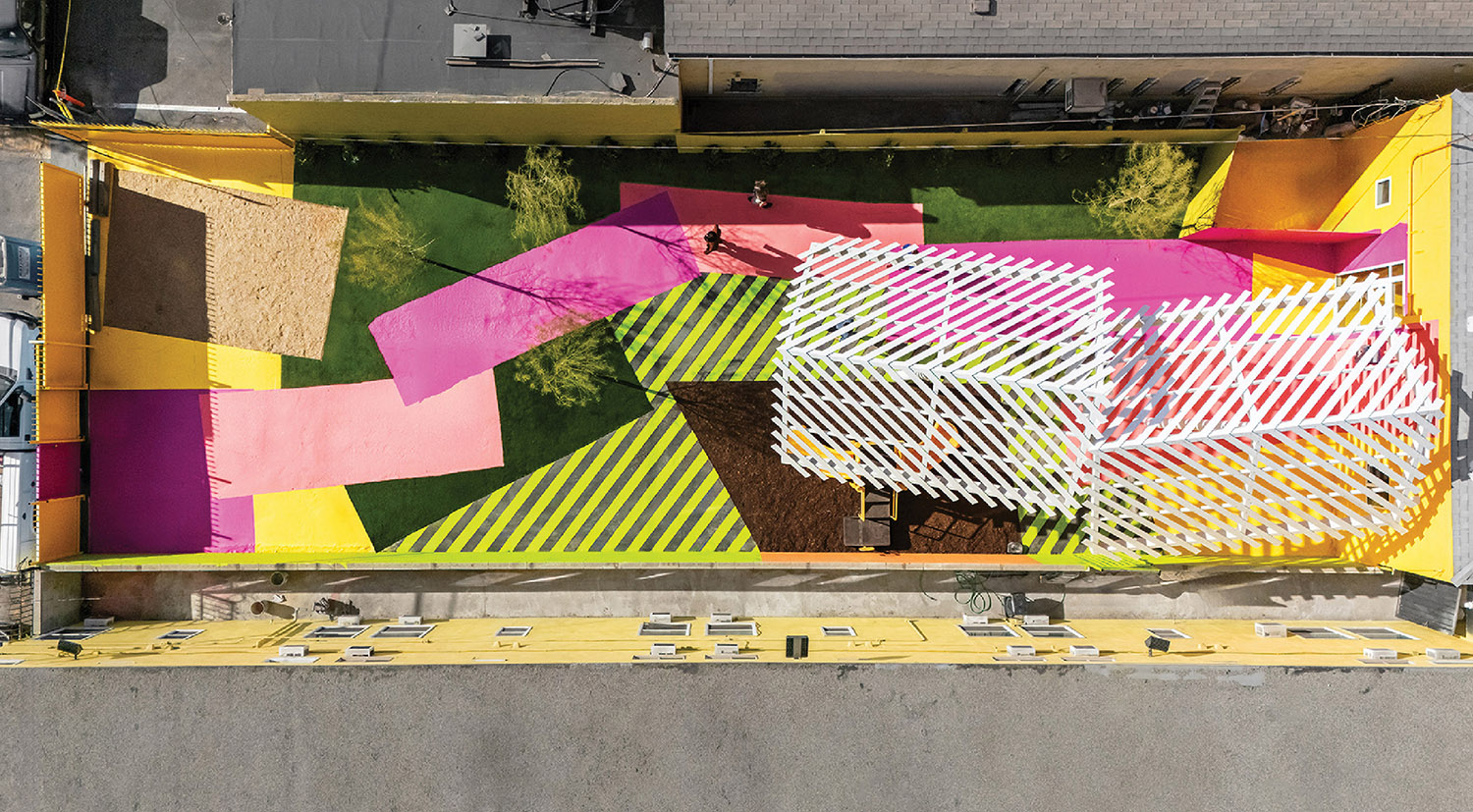5 Outstanding Projects, All in Different Countries, Confirm Great Design Has No Borders
Outstanding projects in locations as diverse as India, Argentina, Dubai, Canada, and Mexico confirm great design knows no national borders.
Great Design on a Global Scale
Gallery House, Bansberia, India by Abin Design Studio
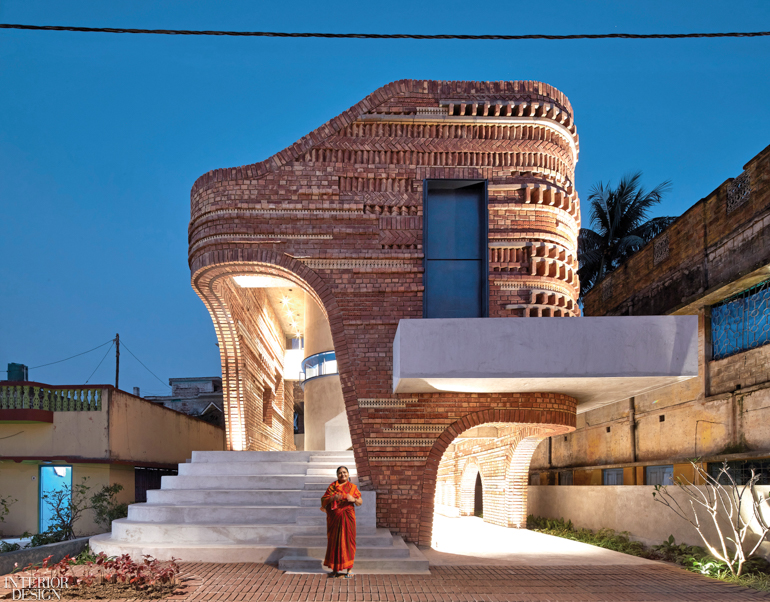
Asked to design a stand-alone garage for the private residence of a childhood friend, architect Abin Chaudhuri not only produced an astonishing brick-and-concrete structure but also significantly enlarged the building’s simple program. Aesthetically, the 4,100-square-foot, two-story facility is a contemporary take on the terra-cotta facades of traditional Bengali temples.
Chaudhuri—the son of mathematicians who discovered his vocation touring a house by the Indian modernist architect Charles Correa, graduated from Jadavpur University in Kolkata, and studied industrial design at Domus Academy Milano—collaborated with ceramic artist Partha Dasgupta on the exterior’s elaborate geometric brickwork. But it was Chaudhuri’s frequent conversations with his client about giving back to their hometown that led him to suggest the garage be largely repurposed as a community center, dubbed Gallery House.
Now the ground-floor parking space is mostly used as a neighborhood meeting hall; upstairs, a multipurpose room hosts dance classes and yoga sessions during the day and functions as a dormitory for resident staff at night. Even the concrete front steps provide a viewing stand for neighborhood processions and festivals: “Anyone can sit there,” Chaudhuri notes with satisfaction.
Related Post: A Celestial Outdoor Canopy by Abin Design Studio Encourages an Upward Perspective
Bambo Beauty, Mexico City by Cadena + Asociados Concept Design
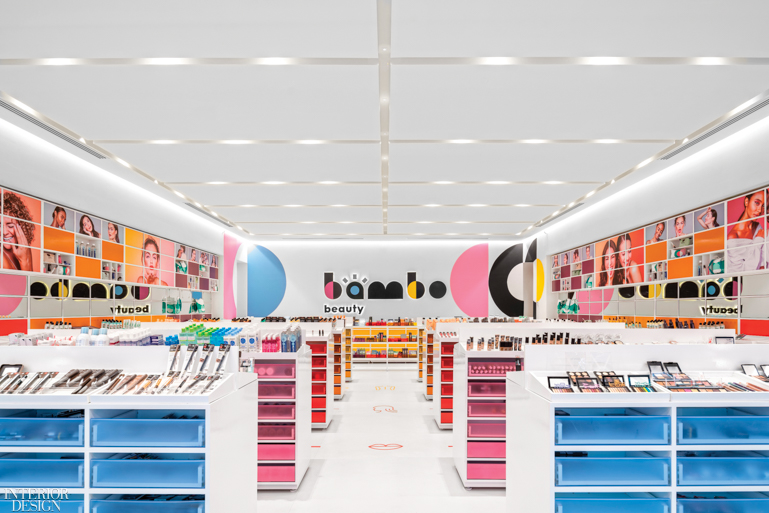
Remember the joyously colorful advertising of labels like the United Colors of Benetton in the 1990s? That vibe is back with Bambo Beauty, a Mexican makeup and skincare company that sells drugstore products like Revlon alongside its own brand. Bambo turned to architect Ignacio Cadena, who founded his multidisciplinary creative agency in 2001, after completing a master’s in architecture at SCI-Arc in Los Angeles, to restyle the company’s digital and physical worlds, including campaign photography, packaging, and the interior of a 1,700-square-foot store in a Mexico City shopping center.
(The U.S. and South America are next.) “Latin American rhythms are translated into graphic grids and chromatic playfulness,” Cadena notes. “It’s a very rational yet playful environment inspiring creativity.” Customers are encouraged to open grids of multicolored plastic and wood drawers to discover what’s inside. Above display units lining the walls, the grids continue with mirrored panels and beauty photography printed and backlit or shown on video screens, Hollywood Squares–style.
Related Post: 10 Questions With… Ignacio Cadena
McMichael Café, Kleinburg, Ontario by Denizens of Design
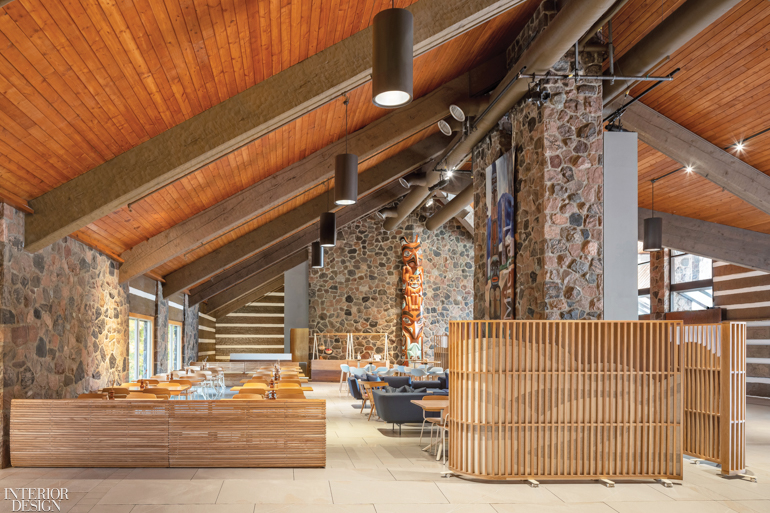
As a child, Dyonne Fashina frequented Ontario’s Nottawasaga River, collecting clay for sculptures. “I was always the kid into art and architecture,” says the principal of Denizens of Design, which she founded in 2014. Armed with an interior design degree from Toronto’s Ryerson University, Fashina climbed the corporate ladder before striking off on her own.
Several successful hospitality projects later, her firm was commissioned to renovate a café at the McMichael Canadian Art Collection in Kleinburg—its holdings include Indigenous works, both historical and contemporary—which Fashina first visited on a school trip years earlier.
The museum’s main building is an enormous log-and-fieldstone cabin built in the 1950s and much-enlarged since. For its new café, Fashina envisioned “a space that felt like it had multiple makers, celebrating Canadian craft in the way the museum celebrates our art.” With movable privacy screens, modular service stations, and flexible furniture, the 2,000-square-foot dining area can be expanded into 3,000 square feet of adjacent gallery space for weddings, cocktail parties, and lectures.
Fristo Frozen Market, Villa María, Argentina by Efeeme Arquitectos
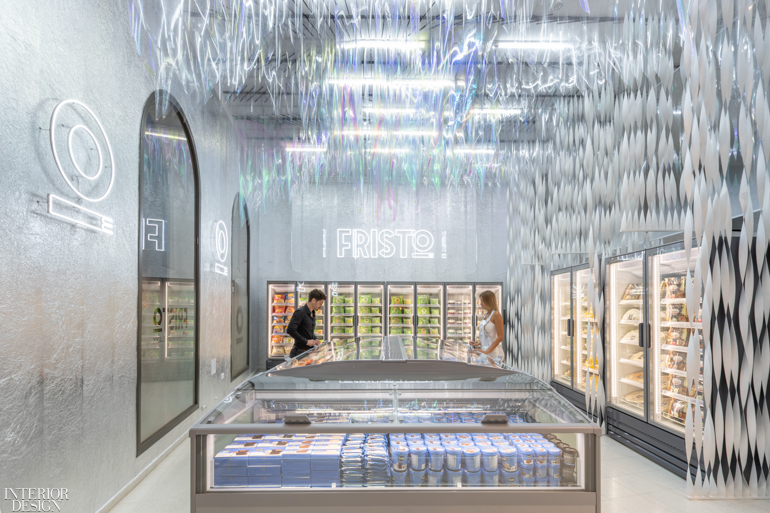
Flavio Díaz and Marina Alves Carneiro, who met as architecture students in the Facultad de Arquitectura, Urbanismo y Diseño at Argentina’s Universidad Nacional de Córdoba, founded their Villa María–based firm in 2011. Since then, the duo has peppered the town with a series of innovative retail spaces that turn shopping into a design experience.
Walk into the new Fristo Frozen Market, for instance, and shiver. Figuratively, that is. Just as the shop’s name mashes up the Spanish words frio (cold) and listo (ready), so its interior deftly combines the pragmatic and the artistic, drawing on what the partners call “Argentina’s multiethnic and multicultural character expressing progress and modernity.” The 870-square-foot space feels like an avant-garde installation that places the viewer—or customer—inside a refrigerator.
Suspended from the ceiling, panels of clear PVC film and simulated icicles made of stainless steel provide visual chills. Aluminum-foil wall covering and glossy porcelain-tile flooring further the frosty effect. Meanwhile, bona fide freezers and a center vitrine keep all that frozen food truly sobre hielo.
Drop Coffee, Dubai, United Arab Emirates by Roar

Pallavi Dean is diversity personified. Born in Mumbai, she grew up in the United Arab Emirates, earning an architecture degree from the American University of Sharjah. She then worked in London for PRP Architects focusing on social housing, far from “glamorous projects in the UAE,” she notes wryly. Dean cites the multiculturalism of her Indian, Emirati, and British backgrounds as a primary influence, “often pushing and pulling me in conflicting directions.”
The same diversity applies at Roar, the Dubai-based design studio she founded in 2013, where the mostly female staff represents ethnicities from Africa, Asia, Australia, Europe, and the Middle East. Although Dean launched the firm because of difficulties she encountered as a woman, “It isn’t about feminism,” she insists. “Gender equality is the real issue.” Drop Coffee, a 1,200-square-foot cafe in Dubai’s Dar Al Wasl Mall, shows Roar’s easy cosmopolitanism to fine effect.
A central grab-and-go counter of pale oak and stainless steel atop an integrally lit glass-block base joins a generous choice of seating possibilities, including a sofa, banquette, freestanding tables and chairs, and a stand-up bar with clamp-on trays. Presiding over it all, a wall-size mosaic of broken ceramic tiles is like an homage to the aesthetic and cultural powers of collage.
Related Post: Roar Entices Pastry-Lovers With a Spunky Donut Brand Design
For more design projects from around the world and the latest news and trends, be sure to visit Interior Design.
